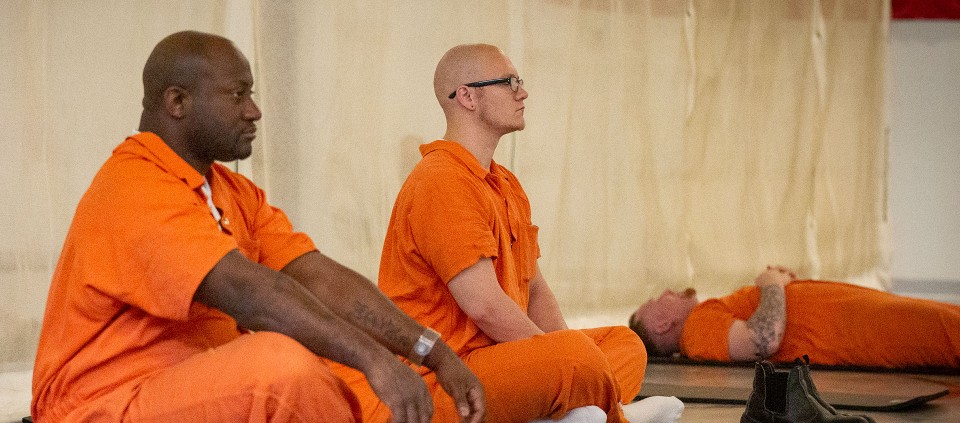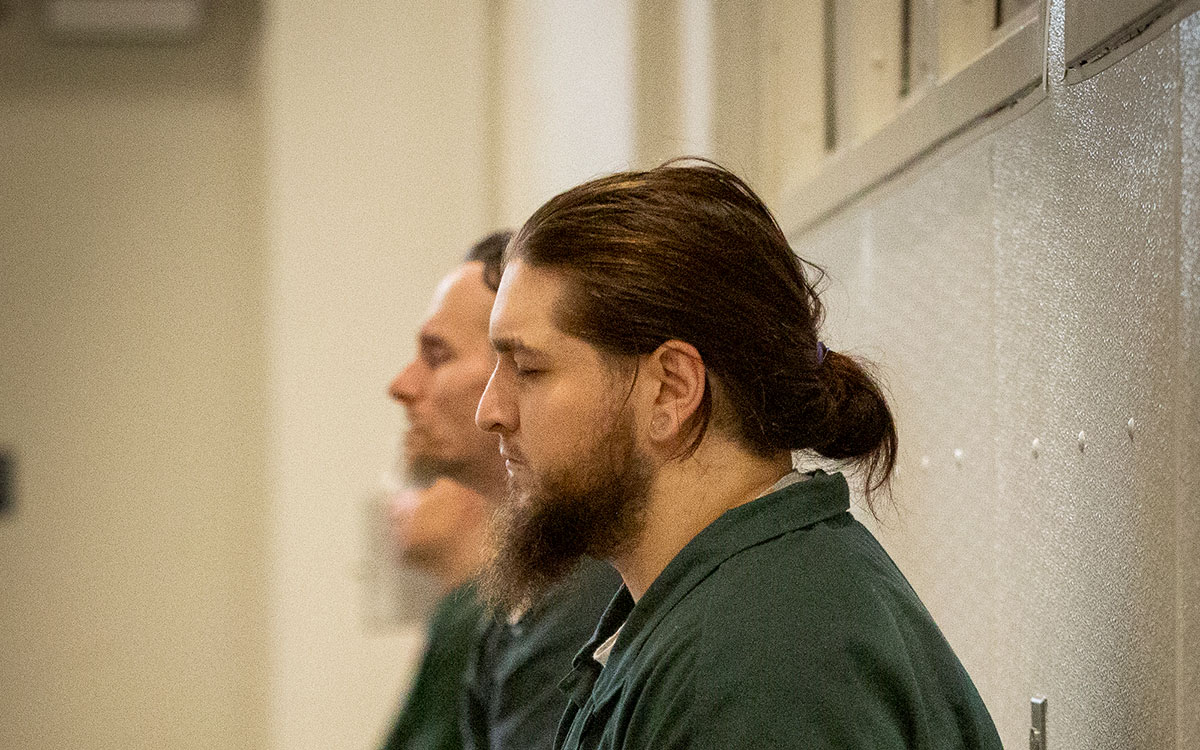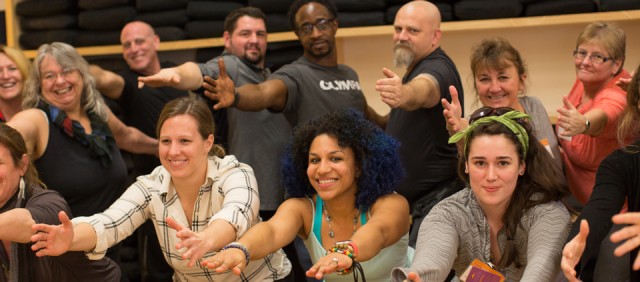In Confinement, Freedom: How Mindfulness Fosters Peace Behind Bars

Before they start their morning meditation, the men pass their coded wristbands under a scanner. Their mats are arranged around the perimeter of a cavernous gym, decorated with bunting and an enormous American flag. The men in orange are awaiting trial or transfer; those in green are serving out their sentences at the Hampden County Correctional Center, a medium-security jail in Ludlow, Massachusetts.
It feels nothing like Kripalu.
Then Nicole Egan, a correctional educator at the county Sheriff’s Department (which runs the jail), cues music and takes up a microphone. Pacing slowly through the gym, she launches into a familiar litany: “Find a comfortable seat ... focus on your breath ... if you feel your mind wandering, return to your breath, without any judgment.”
And, as a sense of calm descends on the gym and envelops the men on their mats, it feels exactly like Kripalu.
Stopping the Revolving Door
Thanks to Kripalu donors, Nicole participated in RISE™ stress-resilience training at Kripalu. Her colleague Tom Rondeau, standards and training manager at the Sheriff’s Department, was one of the first at the jail to attend the RISE program, which is designed for those working in high-stress, high-stakes fields such as law enforcement, healthcare, and human services. Tom and Nicole are just two of the 59 staffers in their department who have participated, with the support of Kripalu scholarships.
“Every inmate here is going to move back into the community,” Tom says. “Have we done our part to prevent the revolving door for our inmates? Have we done everything we can to keep our staff resilient so they can do the work?”
A culture in search of tools has found an invaluable one in RISE. In the first seven months of the morning meditation program (called SAVR—Stress Anger Violence Reduction), there wasn’t a single verbal or physical altercation, a remarkable record.

‘You’re Not Alone’
As participation in RISE among jail employees grows, Tom hopes to gather data to measure the institutional impact, but he has no doubt of the program’s benefit: The officers who say they can finally sleep at night ... a skeptic who turned into a RISE evangelist ... the 21 staff members who showed up for a daylong retreat in June.
“RISE has helped create a community,” he says. “You realize that everyone is struggling with something. You’re not alone.”
Meanwhile, he and Nicole are documenting outcomes of SAVR, conducting inmate surveys pre-program and after 60 days. The research shows near universal gains.
The Gift of Peace
At the end of the hour, two inmates, Dan and Dave, linger to talk about the program. Their green jumpsuits are a reminder that they have a history. But they also have a future. How do any of us accept our past and live the best lives we can, now?
Dan describes how hard it is to find peace in the jail. “Some of the younger guys make fun of us, like, ‘Did you have a nice nap?’” he says. “But they get interested. They can see I’m calm.”
As Dan speaks, he grows more animated. “It puts me out in the woods with the water and the birds,” he says. “You can be wherever you want to be.”
Dave nods. “This is Heaven.”
